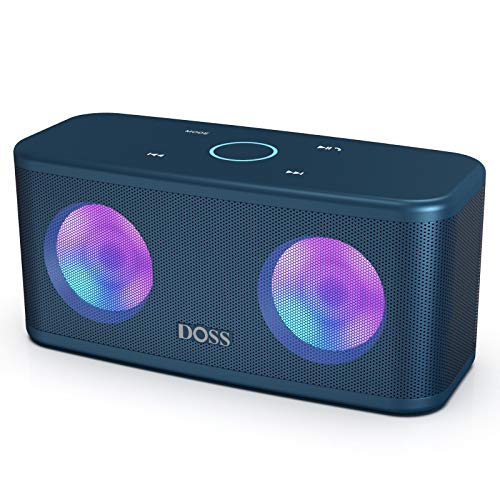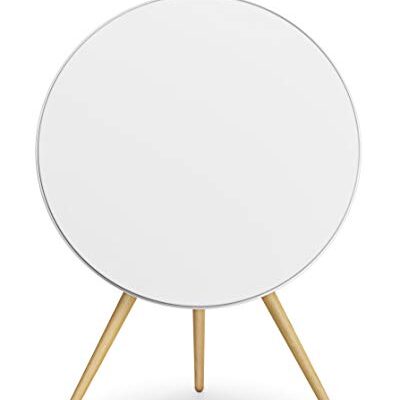Overview
There are a few elements to consider if you want to increase the bass on your Bluetooth speaker. They include the positioning of the speaker, the EQ settings, the signal processing, and the environment in which you use your speaker. You may get a richer and more immersive audio experience with improved bass by adjusting these elements.
- Speaker placement for optimal bass response
- EQ settings to adjust the bass and other audio frequencies
- Signal processing to enhance the bass and reduce distortion
- Environment considerations such as room size and acoustic treatment
How to Make a Bluetooth Speaker Have More Bass
Speaker placement for optimal bass response
When it comes to speaker placement for best bass response, elements such as distance from walls and floors, as well as speaker orientation, must be considered.
Putting the speaker in a corner or near a wall can improve bass response, whilst positioning it away from walls can provide a more balanced sound. Using a subwoofer or positioning the speaker on a firm surface can also improve bass response.
EQ settings to adjust the bass and other audio frequencies
The EQ settings may also be changed to boost the bass and other audio frequencies. Several Bluetooth speakers include built-in EQ settings that allow you to customize the audio output.
Increasing the bass frequency can result in a more prominent bass response, while reducing other frequencies such as the midrange can allow the bass to shine more. Experimenting with different EQ settings might assist you in determining the best balance for your audio demands.

Signal processing to enhance the bass and reduce distortion
Signal processing may also be utilized to boost the bass and decrease distortion in your Bluetooth speaker. Signal processing techniques like as dynamic range compression and equalization can be employed to improve bass response while reducing distortion produced by overdriving the speaker.
Yet, it is critical to apply these approaches with caution, as they might have a severe impact on overall sound quality if not employed correctly.
Environment considerations such as room size and acoustic treatment
Environmental factors such as room size and acoustic treatment can also help to improve the bass response of your Bluetooth speaker. Big rooms with hard surfaces can cause bass loss, whereas tiny rooms with soft surfaces might cause excessive bass.
Acoustic treatment, such as sound-absorbing panels or bass traps, can assist to alleviate these concerns and provide a more balanced sound. Experimenting with different room arrangements and listening locations can also assist improve your Bluetooth speaker's bass response.
FAQs
1. Can I use an external subwoofer to enhance the bass response of my Bluetooth speaker?
Sure, utilizing an extra subwoofer can improve the bass response of your Bluetooth speaker. Several Bluetooth speakers include built-in subwoofer outputs, allowing you to easily connect an external subwoofer for even more bass performance.
2. How do I know if my Bluetooth speaker is capable of producing good bass?
A Bluetooth speaker's bass response might vary based on aspects such as speaker size, driver quality, and signal processing. Reviewing reviews and specs might give you an indication of a speaker's bass performance, but ultimately, you should listen to the speaker to see if it fits your bass requirements.
3. How do I adjust the EQ settings on my Bluetooth speaker?
Most Bluetooth speakers include built-in EQ settings that may be changed via a companion app or physical buttons on the speaker. To learn how to alter the EQ settings on your individual speaker, consult the user manual.

4. Can using signal processing to enhance the bass negatively affect overall sound quality?
Absolutely, utilizing signal processing to boost the bass can have a detrimental impact on overall sound quality if done incorrectly. It is critical to utilize these strategies with caution and to experiment with various settings in order to achieve the ideal balance for your audio demands.
5. Can acoustic treatment help enhance the bass response of my Bluetooth speaker?
Sure, applying acoustic treatment such as sound-absorbing panels or bass traps can assist improve your Bluetooth speaker's bass performance by reducing difficulties such as room size and surface reflections.
Conclusion
Speaker positioning, EQ settings, signal processing, and environmental variables can all help to improve the bass performance of your Bluetooth speaker.
You may get a richer and more immersive audio experience with improved bass by adjusting these elements. Whether you prefer listening to music or watching movies, improving the bass response of your Bluetooth speaker may take your audio experience to the next level.

